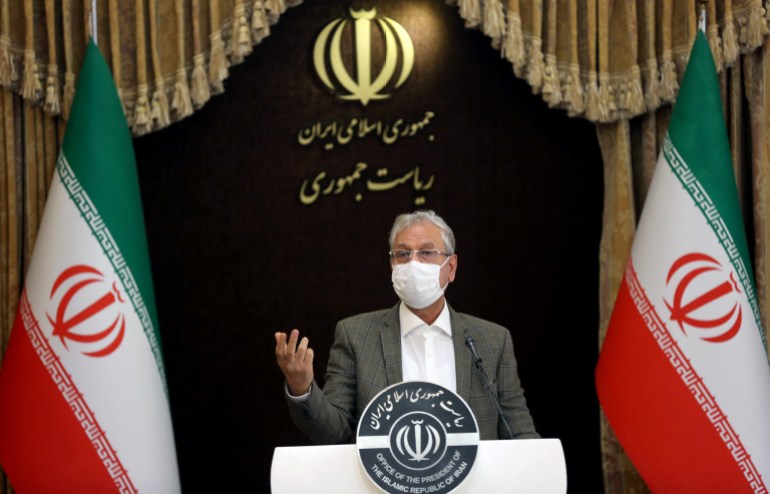The United States imposed sanctions on two officials in the Iranian Revolutionary Guard in the first measure of its kind during the administration of President Joe Biden, and this comes as Tehran confirmed that reviving the nuclear agreement depends on the lifting of US sanctions.
On Tuesday, the US State Department said in a statement that two officials of the Iranian Revolutionary Guard were included in the sanctions list for their involvement in human rights violations, including attacks on detainees during protests that took place in 2019 and 2020.
In the statement, US Secretary of State Anthony Blinken said that Ali Hattian and Masoud Safdari, who belong to the Iranian Revolutionary Guard and all their family members, are currently banned from entering the United States.
Blinken added that his country will continue to discuss all possible tools to make those responsible for human rights violations in Iran pay the price, as he put it.
This measure, which the French Press Agency described as secondary, comes in light of an ongoing debate between Washington and Tehran regarding the return to the 2015 nuclear agreement between Iran and the 5 + 1 group (America, Britain, France, Germany, Russia and China).
The Biden administration had announced its intention to return to the nuclear agreement from which the administration of former President Donald Trump withdrew in 2018, but the knot of disagreement now enables each party to demand the other party to initiate the first step, as Iran says that the United States must first return to the agreement and lift the sanctions, while The United States demands that Iran first come back to respect its obligations stemming from the agreement.
Rabiei said that the only solution to revive the nuclear deal is to lift the sanctions on his country (Anadolu Agency)
Continuous sparring
On Tuesday, government spokesman Ali Rabiei confirmed at a press conference in Tehran that if Washington took the decision to return to the agreement, his country would backtrack on steps to quickly reduce its nuclear commitments.
Rabiei said that the United States has no choice but to abide by the nuclear agreement, and that it should return to it without any preconditions.
He described the Biden administration's policy towards Iran as wrong, noting that his country's policy on the nuclear deal has not changed, considering that the only solution to revive the nuclear deal is to lift sanctions.
For his part, Iranian Foreign Minister Mohammad Javad Zarif said on Tuesday that his country alone has implemented the joint comprehensive action plan concluded by the group of three European countries (Britain, France and Germany), the United States and Iran.
Zarif added - in a tweet on Twitter - that the United States and the group of European countries must fulfill their obligations, saying that if they did so, Iran would respond in kind, as he put it.
Washington had announced its acceptance of the European Union’s invitation to hold direct talks with Iran over its nuclear program, but the latter stresses that before entering into any such talks, US sanctions must be lifted or eased.
On Monday, the US Secretary of State said that the path to diplomacy is open regarding Iran's nuclear file, and that the ball is in its court, warning in the meantime that the steps taken by Tehran make its nuclear program more dangerous, referring to an increase in the pace of uranium enrichment and restricting the access of IAEA inspectors. Atomic Energy to a number of Iranian nuclear sites.
All these developments come as Russia called on Tuesday for a simultaneous return by Washington and Tehran to the Iran nuclear deal.
A package deal proposal
In the context, 140 US lawmakers from the Republican and Democratic parties urged President Joe Biden's administration to seek to conclude a comprehensive deal with Iran.
The message of American representatives calls for an agreement to re-impose restrictions on Iran's nuclear program and limit its ballistic missile program, and the letter calls for addressing what they described as Iran's malign behavior in the Middle East region.
Lawmakers from both parties called on the Biden administration to deal with Tehran "through diplomatic mechanisms and sanctions, until it recedes its malign behavior."
At the same time, the letter stated that restrictions imposed on Iran's nuclear program should be extended, to prove that it is not pursuing a nuclear weapon.
The detainee issue
On the other hand, the US State Department revealed on Tuesday that it sought to find lines of communication with Iran regarding the disappeared or detained Americans.
Ministry spokesman Ned Price said that his country will use these channels to press for information on these detainees, and that this issue reflects the need for this diplomacy, as he put it.

